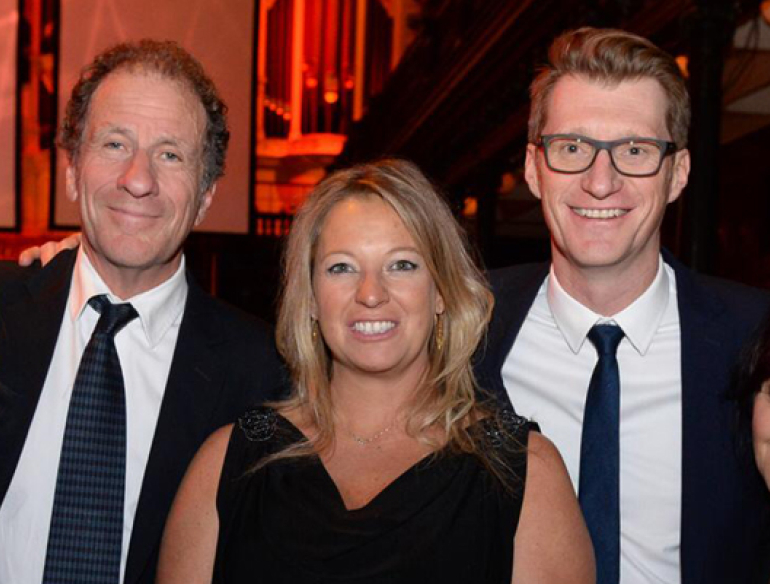Two world-first trials involving mass administration of a drug that virtually eliminated scabies, a neglected tropical disease, have won a prestigious Australian Museum Eureka Prize.
The Scabies Research Team who led these two major trials—the Skin Health Intervention Fiji Trial (SHIFT) and the Azithromycin Ivermectin Mass drug administration (AIM) trials—won the Australian Infectious Diseases Research Centre Eureka Prize for Infectious Diseases Research. The announcement was made at a gala dinner on Wednesday evening at the Sydney Town Hall.
These ground-breaking trials were a partnership between Australian researchers and the Fiji Ministry of Health and the Solomon Islands Ministry of Health. They were led by Associate Professor Andrew Steer from the Murdoch Childrens Research Institute in collaboration with The Kirby Institute UNSW, St Vincent’s Hospital Sydney and Menzies School of Health Research.
The SHIFT study showed that mass drug administration with the drug ivermectin is a highly effective way to control scabies and related bacterial skin sores. It reduced the prevalence of scabies from 33 per cent of the population to less than two per cent.
The impressive results were published in December 2015 in the New England Journal of Medicine.
The AIM study showed that this approach can be rolled out on a larger scale (over 25,000 people) and is an effective and safe public health strategy when integrated with other programs.
“Neglected tropical diseases like scabies receive very little publicity, yet they affect the poorest of the poor,” said A/Prof Steer. “An award like this for our research is really important in raising the profile of scabies and other neglected tropical diseases.”
The terrible itching associated with scabies infection can lead to secondary bacterial infections that can cause potentially deadly diseases including bloodstream infections, kidney and heart disease. Scabies affects 100 million people worldwide every year.
Co-researcher, Professor John Kaldor from The Kirby Institute says: “Our research showed for the first time that community treatment has the potential to eradicate scabies, a debilitating disease that causes long-term health harm in many low and middle income countries.
By promoting the public health importance of these findings, this award will help us to move to the next step, which is making sure communities in need have access to the necessary treatment.”
The Fijian Director of Public Health, Dr Eric Rafai, said: “The mass administration of ivermectin has been an astounding success and we hope it will alleviate the blight of scabies and skin sores in the future.”
A/Prof Andrew Steer said the award recognised more than a decade of hard work by the team in the Pacific, which began by showing 20 per cent of the population in Fiji and the Solomon Islands was affected by scabies at any one time.
“These studies are a huge step forward for reducing the enormous toll of this disease. The results are a game-changer for scabies control in the future,” he said.
“We hope to be able to use this intervention in the future to improve the lives of other people in tropical countries who are affected by scabies in a similar way to those in Fiji and the Solomon Islands.”
Established in 1827, the Australian Museum is the nation’s first museum and one of its foremost scientific research, educational and cultural institutions. The Australian Museum Eureka Prizes were established in 1990 to reward outstanding achievements in Australian science and science communication.
**ENDS**
Media contacts
Andrew Steer: Contact Inga Feitsma, Murdoch Childrens Research Institute, Communications Manager – 0408 657 741
John Kaldor: Contact Luci Bamford, The Kirby Institute UNSW, Communications Officer – 0432 894 029
